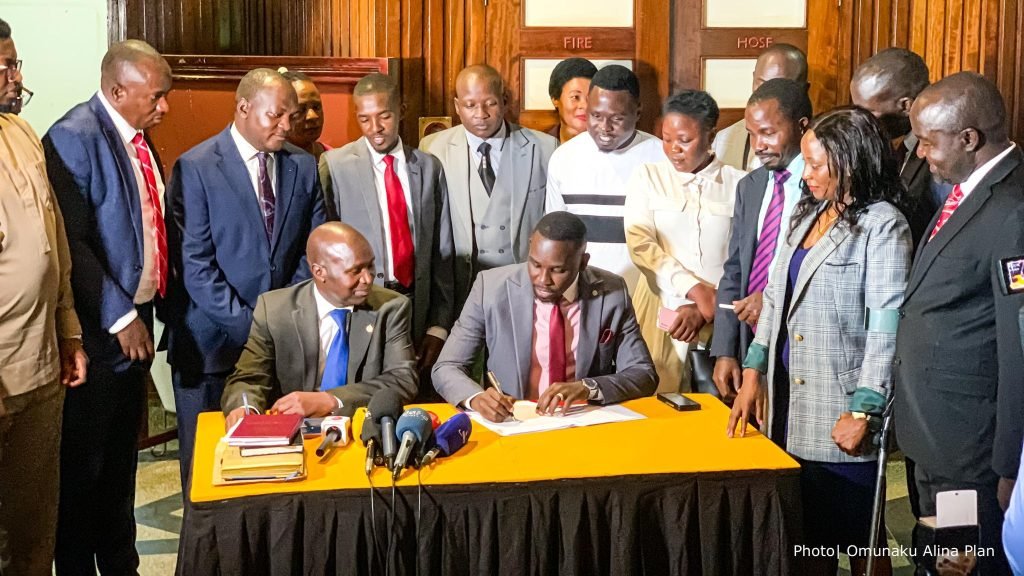The State Minister for Housing, Persis Namuganza and the Leader of Opposition, Joel Ssenyonyi, have joined the team of legislators who have signed the censure motion against four commissioners of Parliament.
The Commissioners Esther Afoyochan (Zombo DWR), Prossy Akampulira (Rubanda DWR), Solomon Silwany (Bukooli Central) and Mathias Mpuuga (Nyendo-Mukungwe), are accused of sharing amongst themselves Shs 1.7 billion.
Speaking shortly after signing the censure motion, Namuganza, claimed that some top leaders at Parliament are spreading fake news that President Museveni isn’t in support of the current censure motion.
She noted that such talks make it seem like the President is condoning corruption, which isn’t the case.
The Minister said the President always communicates through letters and NRM caucus and since no such avenue has been used, the MPs should go ahead and append their signatures to the censure motion.
She asked both religious and traditional leaders not to interfere with the ongoing exercise, saying corruption is such an immoral act for one to hold negotiations about.
She noted that the there are people who have been acting as saints like Mathias Mpuuga Mpuuga, adding “I wasn’t accused of any corruption (during her censure) but he came out saying we want to sanitize Parliament and we want integrity, but I am not seeing his sainthood. We don’t want this process to be interfered with religious or traditional leaders, we can’t hold negotiations over corruption. Our party NRM is losing support due to corruption, so as me who is against corruption and wish to continue seeing my party in power, I have appended my signature to the censure motion,” added Namuganza.
On his part, Ssenyonyi who led a team of opposition legislators to sign the motion, he describing the exercise as a vindication to the NUP that was earlier accused of orchestrating their own, Mathias Mpuuga.
He rejected comparisons made between the Shs1.7Bn service award with the emoluments earned by leaders like Vice President, Speaker, saying that whereas the emoluments were authorized by Parliament, this wasn’t the case with the service award.





